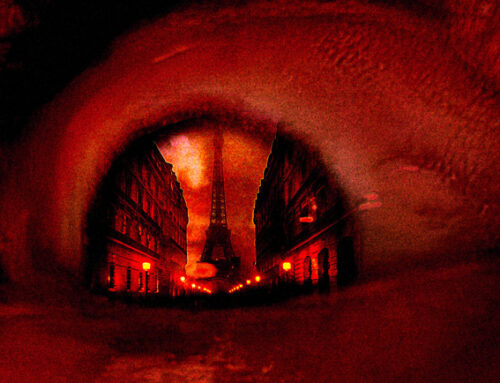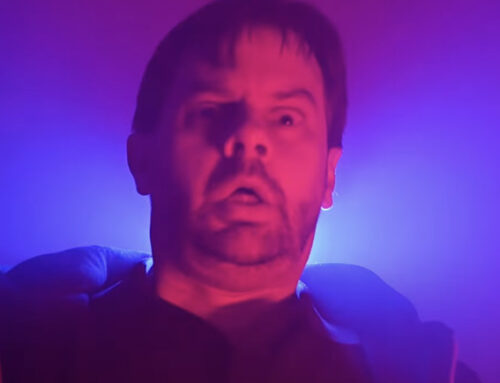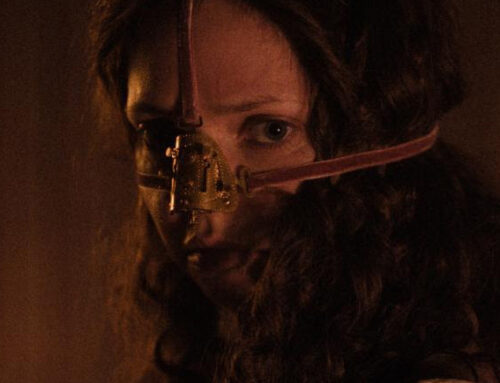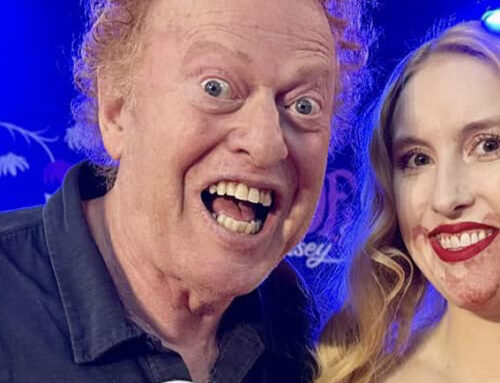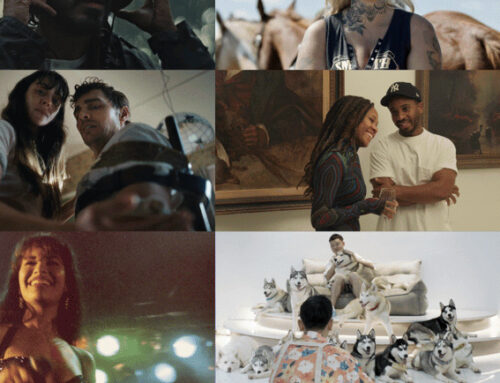Cruise is a thriller-comedy satire about telemarketers that try to sell you a cruise and the aftermath once you hang up on them. The film will be in the Generation XYZ Competition at the Tampere Film Festival. It will also be premiering in other film festivals during this year’s film festival circuit and you can check out the film’s Instagram page for updates.
We spoke with the film’s producer, Mark Delottinville, about his career journey, past projects, and the making of Cruise. Beyond the film, Mark is a multi-talented producer for film and branded content, and co-founder of Big Pig Production Co. He also recently produced the Thrillist’s web series Wine and Cheeseburger, starring Harley Morenstein.
What did your career journey look like that has brought you to where you are today?
I have been involved in production for the past decade in almost all forms whether that is television, movies, or commercial content. I actually think that my growth has been somewhat linear in a way in that I started as a production assistant and then worked my way up to bigger jobs with more responsibility. I am very grateful for this because now as a producer I am able to understand every department and the challenges they face. I certainly don’t feel I have learned everything, far from it, but I do feel that I am a hands-on producer and understand each department’s basic fundamentals. I feel that most producers should take this route as most of the time you are dealing with deadlines and a successful execution of a project and if you know what goes into an ask you are confident it can be executed in the time you have given your team.
How do you decide on which projects you want to work on? Which one has been your favorite so far?
For me it’s a great script that makes me want to work on a project. I feel every project starts and ends with a great script. I think of it like a foundation, the better the script you have the better and smoother your film is going to be. I was watching a round table recently of all the heads of the major studios and streaming services and a great point that they made was that no one sets out to make a bad movie. You always want to make a good movie that connects with audiences and of course makes a profit. However the one thing that they all said was that the problems that usually came up with the movie in filming were problems that they had existed in the script from the beginning, so you can see why it is so important.
This is something that stuck with my favourite project so far, our short film Cruise. Since the beginning Sam Rudykoff (our director and writer) had written a fantastic script that was simple, funny and to the point. The story was easy to identify with and when you read it you instantly got it. It’s a simple story and there isn’t too much too it but when working on a short film I think that is what you need to do. It seems like a lot of times people make a short that should really be better suited as a feature, but for ours we knew it was a contained short. It had a solid beginning, middle and end and we felt that because it was a simple and funny story it would be easy for audiences to connect with and enjoy.
Now, I’d like to dive into some specifics for the upcoming short film, Cruise. What was the process like creating Cruise, what was your working relationship like with director Sam Rudykoff?
I have known Sam since film school, so it’s been over a decade of friendship between the two of us. In that way it was great to go through this process as Cruise was a labour of love, as I am sure all short films are for their respective filmmakers. It’s been an interesting journey as we wrote the film in 2019, with a thought of filming it in 2020 but with the pandemic it put a strain on the process both with limiting contact and also financially. Once the restrictions lifted here (Toronto, Canada) we both had a drive to really get it filmed rather than just have the script sit on shelf and be filled with regret of something we should have or could have done.
Because the two of us had the drive to get it done it allowed us to both push each other when we needed too and ultimately making a film that we were both proud of. Sam is someone who is well versed in cinema, and when it comes to motivations of characters or story I trust him. What is good about that is that we were able to compromise on specific aspects of the film, and ultimately end up with a better product in the end for doing so.
With short films, you have a limited time to tell a story, how do you think Cruise worked with this film format in an impactful way?
I would refer to an answer in the previous questions, in that I feel Cruise has a solid beginning, middle and end. Before I was ever involved in the production world I actually worked for a short film distribution company. My job was to watch short films and screen them for distribution, much like you would for a film festival. I watched hundreds of films over the course of a year, and one of the major problems I found was that most films were either too long or didn’t have a simple structure to identify with or could be a proof of concept. In that way I was really lucky having that experience because it taught me everything I didn’t want to do. Cruise I feel is great because it is a contained story about a simple topic. There is also a hook. A lot of time on a movie or poster there usually is a hook that grabs people’s attention and makes them want to stick around to see what happens, Cruise has this in its first 30 seconds.
Sam had written this intentionally as we wanted people to stick around or immediately turn it off if they didn’t like it. I don’t know if there will be a middle ground, but I certainly feel there will be more of the former than the latter. It is also a topic that I feel regardless of who are most people have had an experience with. The topic of unsolicited callers was something myself and the director felt could be explored in a comedic tone, and have an audience relate to it. I remember thinking, what happens to those people I hang up on, do they get in trouble? And while I certainly hope that what happens in our film doesn’t happen in real life, because the topic was so simple it allowed us to be satirical with it.
How do you think Cruise balances the Thriller Comedy genre?
I believe that making and filming a successful comedy is one of the hardest things to do, regardless of format. Humour is so relative to each individual person so to have jokes that connect to a wider audience while still maintaining your vision can be tough. Now on top of that try to also fit a comedy inside another equally hard genre and execute it correctly becomes an even tougher job. I really do believe that Cruise does this successfully. There is a point in the film where you feel it is going to go one way and then takes a hard turn into the complete opposite direction and I think it works. Audiences should be able to identify when they see it, but the people who have seen the film seem to like the tone of it and really feel the beats connect without the film going too far in either of the genres.
I also feel that Cruise does well in both genres because of the score of the film. Marcel Ramagnano, our composer on the film, did a great job in hitting the right beats with the limited time that we gave him. What is interesting is that with the same score themes he was able to get across both a sinister tone in some areas and a comedic tone in others, all while using the same score. Personally I think that is a huge accomplishment. When people watch it they compare the musical themes to that of Jaws and the work done by John Williams. This was interesting to me because it wasn’t something that was done intentionally, more of a subconscious choice, but I can see it there and when you have to quickly identify a villain, what better way then to get inspiration from one of the greatest thrillers, if not the greatest thriller of all time.
When you are assigned a new project, what is usually your first step in the process?
When getting a new project I think it is great to identify the audience that the content is for. Once you identify the audience then you can really double down on what will make your content successful. For example if you are working on a narrative horror short it’s good to compare what genres of horror are popular at the moment, what films have done well at festivals that are similar to yours, what content do you want to model it after etc. If a zombie horror in the style of George A Romero is really popular at the moment you know that an audience will gravitate towards your film versus a young adult vampire movie that might not be as popular with audiences at the moment.
That doesn’t mean that certain content won’t ever be popular again, you just might be able to find an audience easier for your film by targeting popular culture. Working in commercial advertising I feel it has really allowed me to identify this quickly and understand what will connect with an audience and what won’t. In advertising you only have thirty seconds to sixty seconds to tell your story and everything in your ad needs to connect with your audience. Film and Television has a luxury in that you have time to build that and can shape and adapt it depending on what your audience is responding too, especially television. But in advertising I don’t have that luxury. It has allowed me to be concise and get to the point faster with my content and now producing short form narrative I feel that has been immeasurable in my success so far.
What 1 sentence of advice would you give to aspiring filmmakers?
It’s a marathon not a sprint, and it’s fine if it takes longer than you think to get to where you want.
I would want to go into a bit more context on this. As much as all of us would want something to happen overnight it generally doesn’t. The times that people say that someone has “blown up overnight” isn’t actually overnight. What they don’t see is the years of hard work and perseverance finally paying off. Even for myself I don’t feel I have come close to hitting my potential in my career at all. The difference between now and ten years ago is that growth and milestones of my career taking time don’t bother me any more. I know I have to just keep doing a good job and keep working hard to get to where I want to be.
–
Thank you for reading! You can learn more about Mark and Big Pig Production Co. here and you can follow the film on Instagram.



